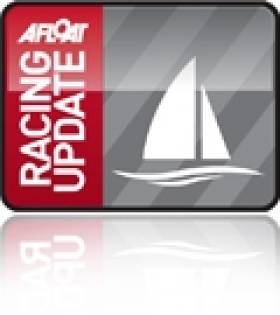Displaying items by tag: Squib Nationals
Squib Keelboat Class Agrees To Modernise
#squib – There are developments afoot for The Squib keelboat following a recent ballot of boat owning members. The Squib Class voted overwhelmingly in favour of rules change to improve and modernise the design.
The class will stage its 2015 British and Irish Championships in Howth, County Dublin this Summer. Over 70 boats are expected to compete.
Final proposals are now being agreed with the RYA prior to work commencing on new moulds and a prototype, which we hope to complete in time for it to be sailing at the Class National Championships at Howth.
The improvements are intended to enhance the Class without outdating any existing boats. There are a number of construction and fitting improvements including a self draining cockpit.
The low maintenance construction system will comply with the requirements of Recreational Craft Directive (RCD). The hull form and sail plan will remain unchanged but the Squib will have a 'fresh, more modern feel' and benefit from a quality construction method.
The self draining cockpit is a major safety improvement and will allow Squibs to both sail and be left on moorings without the need for bailing out, thus making the Squib more user friendly for racing, cruising, and for use by sailing schools.
The Squib has been in existence for more than 46 years and continues to be a successful small keelboat for racing and coastal day cruising. 65 plus boats competed at the 2014 National Championship and 31 boats started on the line at last year's Cowes Week. The Squib Class was overall Class winner at Cowes Week 2014.
More on the UK site here. For more on Irish Squib sailing read WMN Nixon's blog
Squibs Enter Final Day
The 68-strong fleet head into the final day of the SF Marina Ireland Squib Nationals today, a week of sailing that has been dogged by fog and light airs.
Just five races have been completed so far, and the leaders enjoy just a two-point cushion going into the final stage. That is, if they go out at all.
With just 2 knots of wind showing on Dublin Bay at the moment, this event, billed as one of the biggest one-design events in Dun Laoghaire, has been something of a damp squib (excuse the pun) in terms of conditions.
UK boats have dominated things when racing did go ahead, with just one Irish boat in the top ten (Peter Wallace and Kerry Boomer from Royal North). Abersoch sailors occupy the top two slots, the Harris/Stephenson pairing just two points clear of Dave Best and Pete Richards in second.
Fog Robs Squibs of Day Two
Thick fog on Dublin Bay meant a day ashore yesterday for the 140 competitors in the SF Marina Squib Nationals at the Royal St George Yacht Club.
Nigel Grogan and Daniel Cripps from Royal Corinthian maintain their lead from the first race and the fleet is out on the water now in 10-15 knots from the South East.
Race one on Sunday started with a general recall followed by black flag start, with three boats bowing out at that stage . The first boats round that took the left side of the beat were hugely disadvantaged as the wind die and veered into the East. At one point 50% of the fleet were beating whilst the other half had spinnakers up. PRO, David Lovegrove, did a terrific job in difficult conditions at the weather mark.
Gallery photos HERE.
Event website is HERE, with results .































































